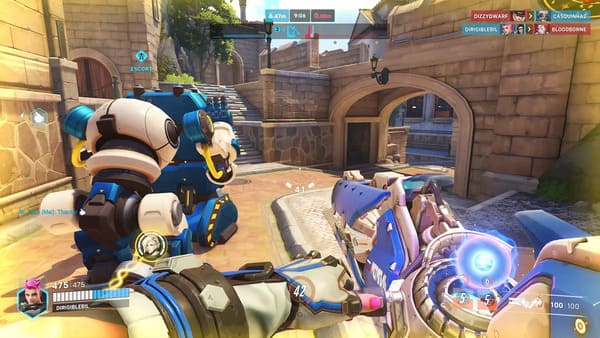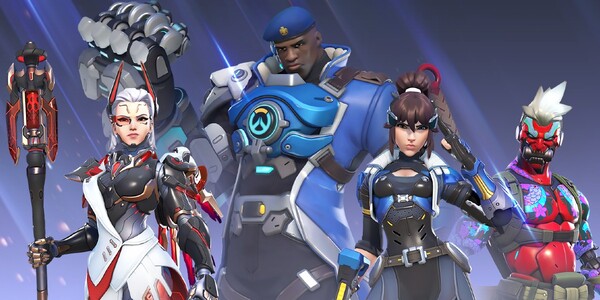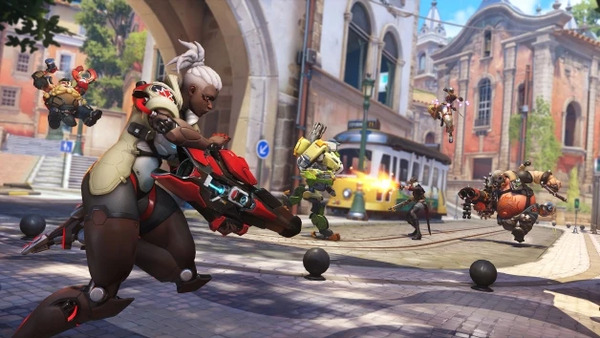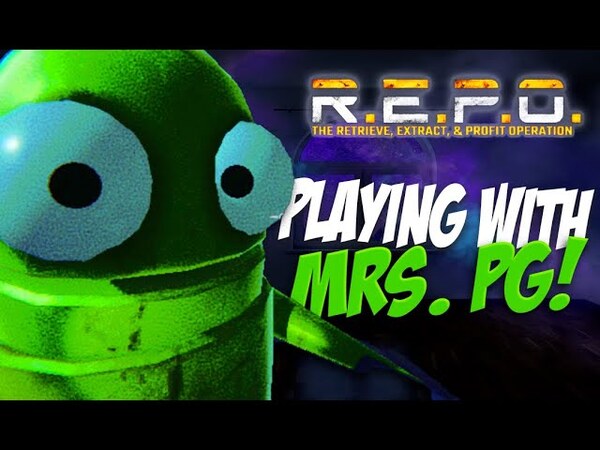Introduction
Overwatch 2, Blizzard Entertainment’s highly anticipated sequel to the original Overwatch, aims to enhance the player experience while introducing new gameplay mechanics and characters. However, one of the most contentious issues surrounding Overwatch 2 is its matchmaking system. Players have voiced concerns over issues such as unfair matchups, long wait times, and the impact of skill rating (SR) decay on their experience. This article delves into the complexities of the matchmaking system in Overwatch 2, examining its design, the challenges it presents, and potential solutions to improve the player experience.

The Evolution of Matchmaking in Overwatch
Early Matchmaking Systems
The original Overwatch employed a relatively straightforward matchmaking system based on players’ skill ratings. Players were placed into games against others of similar skill levels, which aimed to create competitive matches. However, as the player base grew, this system began to show its limitations. Issues such as extended wait times and inconsistent match quality emerged, prompting Blizzard to re-evaluate their approach.
The Shift to Overwatch 2
With the transition to Overwatch 2, Blizzard aimed to refine the matchmaking process. The introduction of a new player progression system, alongside changes to how skill ratings are calculated, was intended to enhance player experience. However, the fundamental challenge of creating balanced matches remained. Players have expressed dissatisfaction with the new system, citing various issues that continue to affect their enjoyment of the game.
Understanding the Matchmaking Algorithm
Skill Rating and Its Calculation
In Overwatch 2, players are assigned a Skill Rating (SR) that reflects their performance in competitive matches. This SR is determined by various factors, including individual performance, match outcomes, and the skill levels of teammates and opponents. While this system is designed to create balanced matches, it can also lead to inconsistencies, especially for players who experience drastic fluctuations in their SR.
Matchmaking Logic

The matchmaking algorithm aims to create teams with similar average SR, balancing the overall skill level of both sides. However, the complexity of this system can lead to problems. For example, if a high-SR player is matched with lower-SR teammates, it can create an unbalanced game that is frustrating for all players involved. This is particularly concerning in a game where teamwork is essential for success.
Player Concerns About Matchmaking
Unfair Matchups
One of the most significant complaints from players is the prevalence of unfair matchups. Many report being placed in games where the opposing team has a significantly higher average SR, leading to a sense of hopelessness and frustration. This not only affects individual player morale but can also discourage players from engaging with the competitive mode altogether.
Long Wait Times
In addition to unfair matchups, players often experience long wait times when trying to enter a game. This issue can be exacerbated during peak hours or when the player base is fragmented due to the introduction of new heroes and modes. Long wait times can lead to dissatisfaction and diminish the overall enjoyment of the game, causing players to abandon the competitive experience.
The Impact of Skill Rating Decay

Understanding SR Decay
Overwatch 2 introduced a skill rating decay system that penalizes inactive players by reducing their SR if they do not participate in competitive matches for a certain period. While this system encourages regular play, it can have unintended consequences for players who may not be able to play frequently due to real-life commitments.
Consequences for Casual Players
Casual players, in particular, have expressed frustration over SR decay. Many feel that the system unfairly punishes those who enjoy the game at a more leisurely pace. When they return to competitive play after a break, they often find themselves at a lower SR than expected, leading to unbalanced matchups and discouragement. This can create a negative feedback loop, where players are deterred from playing due to perceived unfairness.
Community Feedback and Blizzard's Response
Engaging with the Player Base
Blizzard has made efforts to engage with the community regarding matchmaking concerns. Forums and social media channels serve as platforms for players to voice their opinions and experiences. The developers have acknowledged the issues raised and expressed a commitment to improving the matchmaking system, but many players feel that changes have been slow to materialize.
Ongoing Adjustments
In response to community feedback, Blizzard has implemented various adjustments to the matchmaking system, including changes to how SR is calculated and the introduction of stricter matchmaking parameters. However, players remain skeptical about the efficacy of these changes, often citing ongoing issues with match quality and balance.
Potential Solutions for Matchmaking Issues
Enhanced Algorithm Adjustments
One potential solution to improve matchmaking in Overwatch 2 is to enhance the matchmaking algorithm itself. This could involve refining the criteria used to evaluate player skill, incorporating additional factors such as teamwork and communication. By creating a more comprehensive assessment of player abilities, the algorithm could generate more balanced matchups.
Flex Queue and Role Queue Improvements
Another avenue for improvement is to focus on the flex queue and role queue systems. By allowing players to better communicate their desired roles and responsibilities, the game could create a more cohesive team dynamic. Improving the flexibility of matchmaking could lead to better overall team compositions and enhance player satisfaction.
The Future of Matchmaking in Overwatch 2
Commitment to Continuous Improvement
As Overwatch 2 evolves, Blizzard has expressed a commitment to continuously improving the matchmaking system. This will require ongoing analysis of player data, feedback, and community engagement to identify areas for enhancement. Developers must remain responsive to player concerns and adapt the system to meet the needs of the community.
Embracing Community Suggestions
Incorporating community suggestions and feedback into future updates can lead to meaningful improvements in matchmaking. Engaging players in discussions about desired changes and potential solutions can create a sense of ownership within the community, fostering a more positive relationship between players and developers.
Conclusion
The matchmaking system in Overwatch 2 presents a complex set of challenges that impact the player experience. From unfair matchups and long wait times to the implications of skill rating decay, these issues require careful consideration and ongoing attention from Blizzard Entertainment. By enhancing the matchmaking algorithm, addressing community concerns, and committing to continuous improvement, the developers can create a more balanced and enjoyable competitive experience for all players. Ultimately, a well-functioning matchmaking system is essential for the longevity and success of Overwatch 2, ensuring that players remain engaged and invested in the game.

 The matchmaking algorithm aims to create teams with similar average SR, balancing the overall skill level of both sides. However, the complexity of this system can lead to problems. For example, if a high-SR player is matched with lower-SR teammates, it can create an unbalanced game that is frustrating for all players involved. This is particularly concerning in a game where teamwork is essential for success.
The matchmaking algorithm aims to create teams with similar average SR, balancing the overall skill level of both sides. However, the complexity of this system can lead to problems. For example, if a high-SR player is matched with lower-SR teammates, it can create an unbalanced game that is frustrating for all players involved. This is particularly concerning in a game where teamwork is essential for success.



















